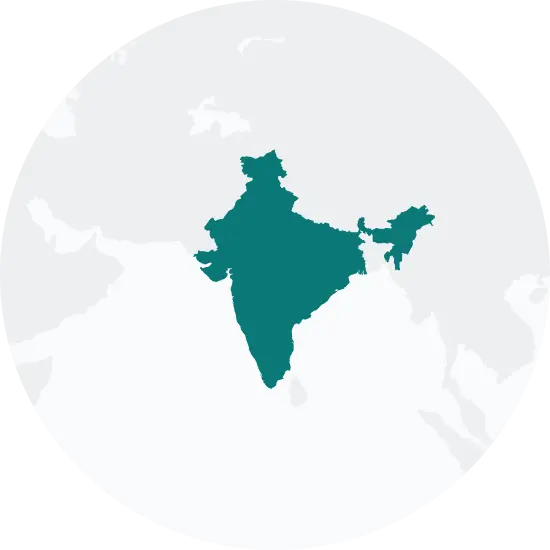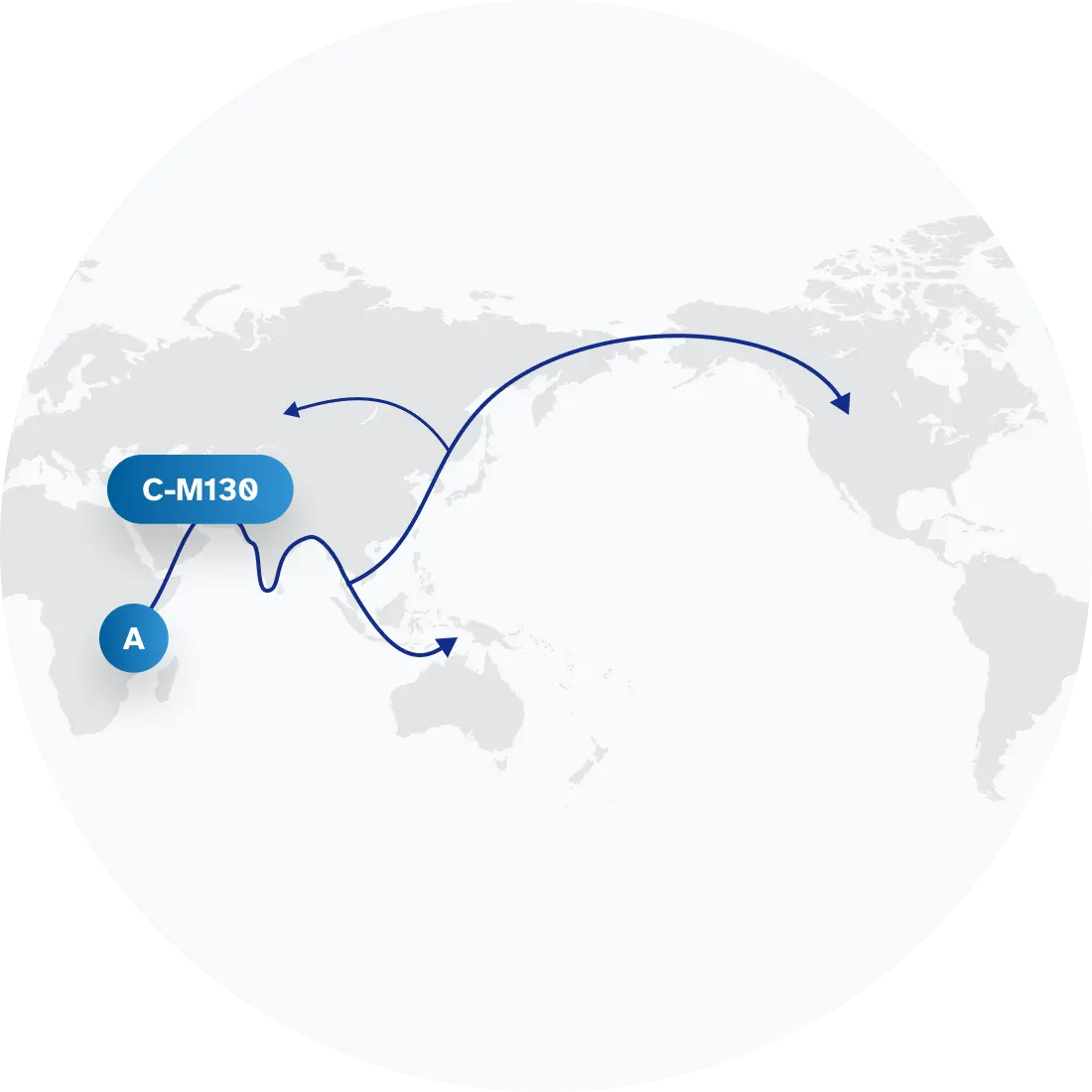Explore the Family Name Mistry
How common is the last name Mistry in the United States?
Based on the Decennial U.S. Census data, the surname Mistry has seen a significant increase in popularity over the decade from 2000 to 2010. In 2000, it was ranked 11,653 in terms of popularity, but by 2010, it had surged up to rank 8,832. This marks a growth rate of 24.21%. The actual count of individuals with the Mistry surname also rose from 2,466 in 2000 to 3,710 in 2010, witnessing an impressive 50.45% increase. Furthermore, the proportion of people with this surname per 100k of population increased by 38.46%, going from 0.91 to 1.26.
| 2000 | 2010 | Change | |
|---|---|---|---|
| Rank | #11,653 | #8,832 | 24.21% |
| Count | 2,466 | 3,710 | 50.45% |
| Proportion per 100k | 0.91 | 1.26 | 38.46% |
Race and Ethnicity of people with the last name Mistry
Regarding ethnic identity, again based on the Decennial U.S. Census data, most people with the Mistry surname identify as Asian/Pacific Islander. In 2000, 88.24% of Mistrys identified as such, and this figure rose to 93.05% in 2010, a 5.45% increase. The percentage of people identifying as having two or more races dropped dramatically from 7.06% to 2.59%, a decrease of 63.31%. Those identifying as White also declined slightly from 4.10% to 3.37%, marking a 17.80% reduction. There were no people with the Mistry surname who identified as Hispanic or Black in 2000; however, by 2010, both groups constituted 0.38% each. The proportion of people identifying as American Indian and Alaskan Native fell from 0.32% to 0.24%, a decrease of 25.00%.
| 2000 | 2010 | Change | |
|---|---|---|---|
| Asian/Pacific Islander | 88.24% | 93.05% | 5.45% |
| White | 4.1% | 3.37% | -17.8% |
| Two or More Races | 7.06% | 2.59% | -63.31% |
| Hispanic | 0% | 0.38% | 0% |
| Black | 0% | 0.38% | 0% |
| American Indian and Alaskan Native | 0.32% | 0.24% | -25% |
Mistry ancestry composition
23andMe computes an ancestry breakdown for each customer. People may have ancestry from just one population or they may have ancestry from several populations. The most commonly-observed ancestry found in people with the surname Mistry is Northern Indian & Pakistani, which comprises 60.9% of all ancestry found in people with the surname. The next two most common ancestries are Southern Indian & Sri Lankan (16.8%) and British & Irish (6.7%). Additional ancestries include Iranian, Caucasian & Mesopotamian, French & German, Gujarati Patidar, Southern Indian Subgroup, and Bengali & Northeast Indian.
Ready to learn more about your ancestry? Get the most comprehensive ancestry breakdown on the market by taking our DNA test. Shop 23andMe
| ANCESTRY BREAKDOWN | COMPOSITION |
|---|---|
| Northern Indian & Pakistani | 60.9% |
| Southern Indian & Sri Lankan | 16.8% |
| British & Irish | 6.7% |
| Other | 15.6% |

Possible origins of the surname Mistry
Your DNA provides clues about where your recent ancestors may have lived. Having many distant relatives in the same location suggests that you may all share common ancestry there. Locations with many distant relatives can also be places where people have migrated recently, such as large cities. If a large number of individuals who share your surname have distant relatives in a specific area, it could indicate a connection between your surname and that location, stemming from either recent ancestral ties or migration.
Based on 23andMe data, people with last name Mistry have recent ancestry locations in India and the United Kingdom of Great Britain and Northern Ireland.
| RECENT ANCESTRY Location | Percentage |
|---|---|
| Gujarat, India | 60.40% |
| Maharashtra, India | 35.80% |
| Kerala, India | 23.60% |
| Punjab, India | 21.70% |
| Karnataka, India | 16.00% |
What Mistry haplogroups can tell you
Haplogroups are genetic population groups that share a common ancestor on either your paternal or maternal line. These paternal and maternal haplogroups shed light on your genetic ancestry and help tell the story of your family.
The top paternal haplogroup of people with the surname Mistry is C-Z5899, which is predominantly found among people with Central & South Asian ancestry. Haplogroup C-Z5899 is descended from haplogroup C-M130. Other common haplogroups include H-M69 and R-Y7, which are predominantly found among people with Central & South Asian and Central & South Asian ancestry. Other surnames with similar common haplogroups are: Shah, Siddiqui, Shaikh, Verma, Zaman, Rahman, Sharma, Das, Hussain, Nair.
The most common maternal haplogroups of people with Mistry surname are: M, M3a1, H. These most commonly trace back to individuals of Central & South Asian and European ancestry.
 Paternal Haplogroup Origins C-M130
Paternal Haplogroup Origins C-M130Your maternal lineage may be linked to Marie Antoinette
Because it is so dominant in the general European population, haplogroup H also appears quite frequently in the continent's royal houses. Marie Antoinette, an Austrian Hapsburg who married into the French royal family, inherited the haplogroup from her maternal ancestors. So did Prince Philip, Duke of Edinburgh, whose recorded genealogy traces his female line to Bavaria. Scientists also discovered that famed 16th century astronomer Nicolaus Copernicus traced his maternal lineages to haplogroup H.

What do people with the surname Mistry have in common?
Spoiler alert: it's complicated. People with the same last name are usually no more genetically similar than a randomly sampled group of people from the same population. That said, people with the same surname are more likely to have similar ancestries than randomly sampled individuals. The reason is the tendency of people with similar cultural or geographical backgrounds to preferentially mate with one another. That's why people who share a surname may be more likely to share traits and tendencies in common than people within the general population. Check out the percentages below to see the prevalences of tastes, habits, and traits of people with your surname compared with prevalences among 23andMe users.
Preferences
Traits
Wellness

Migraine
A severe headache characterized by intense pain, sensitivity to light and sound, and often accompanied by nausea and vomiting.
"Mistry" Surname 13.9%
23andMe Users 16.4%
Are health conditions linked to the last name Mistry?
The short answer is that, if there is an association between surname and health, it's usually more about your ancestry than your name. Individuals with a given surname are no more genetically similar than the general population but often have similar ancestries. The populations of people associated with those shared ancestries often have sets of genetic variations, also known as alleles, in common. Some of those alleles are associated with a greater likelihood of developing certain diseases.
Disease variant frequency by ancestry
Disease allele frequencies in populations associated with the surname Mistry are shown below. Important Note: not everyone with a disease allele will develop these health condition




